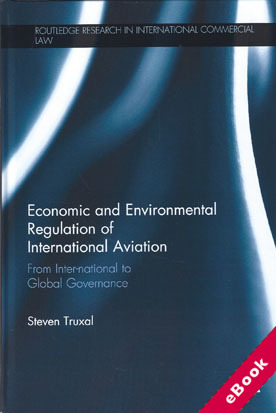
The device(s) you use to access the eBook content must be authorized with an Adobe ID before you download the product otherwise it will fail to register correctly.
For further information see https://www.wildy.com/ebook-formats
Once the order is confirmed an automated e-mail will be sent to you to allow you to download the eBook.
All eBooks are supplied firm sale and cannot be returned. If you believe there is a fault with your eBook then contact us on ebooks@wildy.com and we will help in resolving the issue. This does not affect your statutory rights.
International aviation has undergone an astonishingly swift evolution in the century following the very first International Air Navigation Conference (Paris, 1910).
This has called for development in parallel of public law on international aviation, and in particular for creation of new types of regulation that has given way to considerable interplay between regulations on multiple levels. Private international law has also advanced in line with the need for new protections of the rights of individuals concerned with international aviation.
The recognition and reconciliation by international organisations of the ensuing systems of national and regional aviation law and regulation has been guided by the core principles of the specialised United Nations (UN) agency overseeing the safe and orderly development of global civil aviation, the International Civil Aviation Organization (ICAO), which are non-discrimination and equal treatment.
Four complete studies on multilevel regulation are offered in this book as evidence for the book’s discourse on how multilevel economic and environmental regulation of aviation may well lead to unintended economic consequences for global competition between airlines registered under flags of different jurisdictions and therefore subject to different national and regional regulation. In its thesis the book furthermore queries reflectively whether agreed core economic principles are needful before environmental goals can be set.
This book will be of great interest to scholars and practitioners of aviation law and competition law in general.